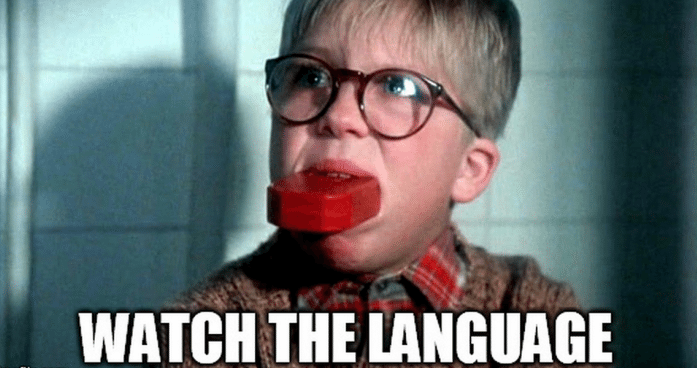Verizon Communications has a response to T-Mobile US CEO John Legere after his heated rant regarding next year’s planned 600 MHz spectrum auction.
In a blog post titled “Watch the language,” Verizon responds by wryly admonishing Legere for his potty mouth and saying he is flat-out wrong.
“Beyond the fact that the administrators of his alma mater St. Bernard’s Central Catholic School, the Sisters of the Presentation of the Blessed Virgin Mary, would probably rap his hand with a ruler for that kind of language, Mr. Legere is simply wrong,” Verizon stated.
This comes after Legere accused Verizon and AT&T of trying to block smaller carriers from participating in next year’s 600 MHz spectrum auction. In part, he said, “If you’re not pissed off, you’re not paying attention” while referring to Verizon and AT&T as dumb and dumber.
Legere also reiterated his previous claims that the current domestic mobile market is a duopoly and implies AT&T and Verizon are keeping the little guys from being able to compete.
“Spectrum is valuable, and there is a finite amount. … And right now, AT&T and Verizon are feverishly protecting their wireless duopoly by hoarding spectrum at the expense of American consumers,” Legere said. “They are trying to control the Federal Communications Commission like they do these airwaves, and I think it’s important that consumers really understand what is at stake.”
Verizon responded: “As we’ve said before, T-Mobile is more than welcome to participate in any auction the FCC holds. No company can prevent another from participating. The last time large swaths of low-band spectrum came to auction in 2007, for example, T-Mobile could have participated. It chose not to.”
T-Mobile US has even gone so far as to team up with rival Sprint to lobby the FCC to set aside spectrum for smaller carriers.
Verizon claims that T-Mobile US and Sprint are not such small carriers, pointing out that T-Mobile US is owned by German telecom giant Deutsche Telekom, which has a market cap of $76 billion, and Sprint is owned by Japanese telecom giant Softbank with a similar market cap around $70 billion.
They also point to T-Mobile US’ rumored merger with Dish Network to refute the small carrier claims saying the combined company would have “more than double the per-customer capacity of Verizon.”
Verizon continued to harp on the Dish Network connection, citing controversial moves in the most recent spectrum auction to refute Legere’s claims of spectrum dominance saying, “It comes at a time when the FCC and others in Washington are examining Dish’s actions in the most recent spectrum auction, where it’s tried to claim a taxpayer-funded $3.3 billion discount from a spectrum program intended for ‘small carriers.'”
Legere claims increased competition will bring down prices for consumers.
“If we can get low-band spectrum and we can steal just 15% of the market from AT&T and Verizon,” Legere said, “we can save consumers money and put $1 billion back into consumers’ pockets.”
Verizon is not buying that argument: “The FCC doesn’t need to give additional handouts to global companies with the financial wherewithal to compete,” Verizon responds. “Nor should it be handing out discounted spectrum to companies with a track record of not investing in networks or serving consumers. The record of the U.S. wireless marketplace is clear: If one invests in networks, innovates and meets consumer needs, success can follow, with no need for government assistance.
At the AWS-3 auction, which closed in January, AT&T bid $18.2 billion, Verizon Wireless bid $10.4 billion and T-Mobile US bid $1.8 billion.

